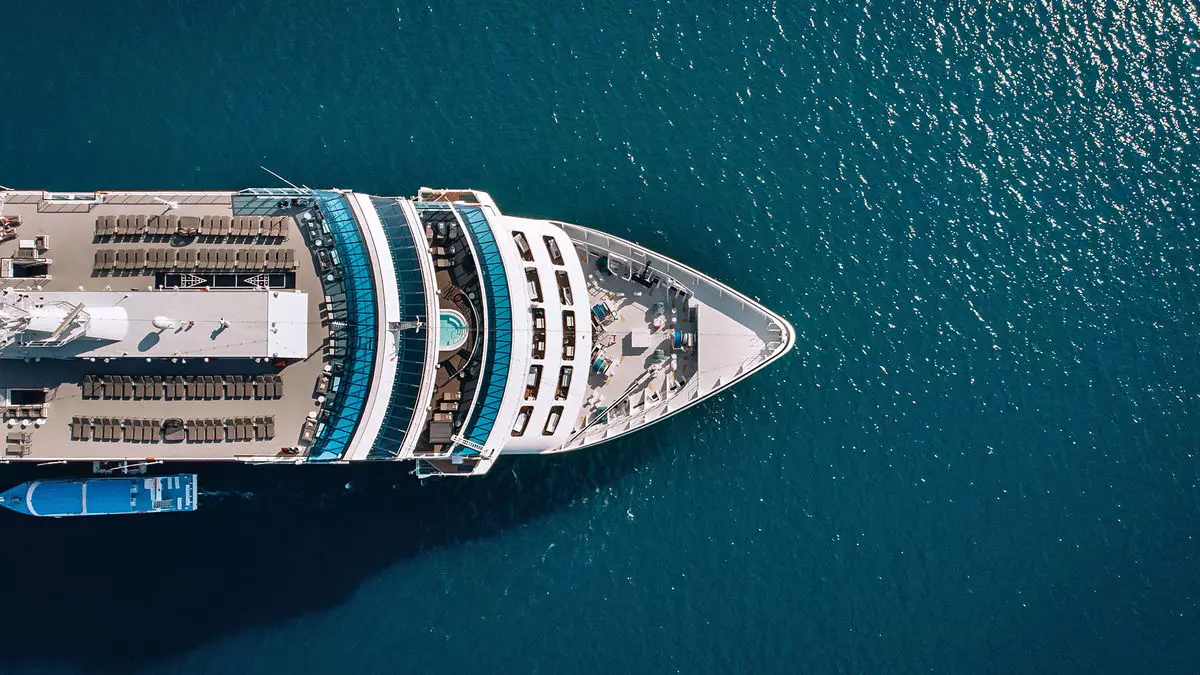The cruise industry has significantly bolstered the American economy, generating an impressive $65 billion in economic output in 2023 alone. With the creation of approximately 290,000 jobs across various sectors, the industry’s influence extends beyond just tourism. However, the fragile nature of the cruise industry has become apparent with recent developments in the political landscape. As the Trump administration introduces potential tax reforms, cruise lines may find themselves at a crossroads, uncertain about their future tax obligations and operational costs.
Comments made by U.S. Secretary of Commerce Howard Lutnick have placed cruise operators in the public eye. His claim that most cruise ships are registered under flags of convenience, like Liberia or Panama, allows them to avoid substantial tax liabilities has sparked debate. Lutnick’s assertion that cruise lines can expect heightened taxation under the Trump administration has sent shockwaves through the sector, causing a notable decline in cruise stocks. The uncertainty surrounding these potential tax increases raises questions about the long-term sustainability of cruise companies operating under the current regulatory framework.
Responses from the Cruise Lines International Association (CLIA)
In reaction to Lutnick’s statements, the Cruise Lines International Association (CLIA) has stepped forward to defend the industry. CLIA emphasizes that cruise lines contribute nearly $2.5 billion in taxes and fees within the U.S., accounting for an impressive 65% of their global tax contributions. This serves to highlight the industry’s existing commitment to tax compliance, despite calls for more stringent reforms. The backlash from cruisers, investors, and industry stakeholders underscores the fierce loyalty that the industry commands, demonstrating the potential repercussions if tax reforms are perceived as unjust.
Market analysts, including Patrick Scholes from Truist Securities, suggest that the initial reaction to Lutnick’s comments may be an overreaction. However, caution prevails as the possibility of tax increases lingers in the air. The question remains: what form will these taxes take? As Vince Ciepiel from Cleveland Research Company points out, raising port fees appears to be the most likely avenue for imposing additional costs on cruise operators. If new taxes materialize, the potential economic impact on the cruise industry could be profound, possibly stifling its growth trajectory that has surged post-pandemic.
As the Trump administration embarks on tax revisions, the cruise industry finds itself facing multifaceted challenges. Industry operators need to navigate not only the potential rise in tax obligations but also the ongoing competition and changing consumer preferences in a post-COVID world. The emphasis on domestic travel may offer opportunities for growth, but the specter of increased taxation could temper expansion plans. Cruise lines must prepare strategic responses to potential regulatory changes, ensuring that they can sustain their contributions to the economy while adapting to the evolving landscape.
The future of the cruise industry under increased scrutiny and potential taxation remains uncertain. As political climates shift and economic conditions fluctuate, both regulators and cruise operators must engage in constructive dialogue to foster a mutually beneficial relationship that secures the industry’s viability for years to come.


Leave a Reply